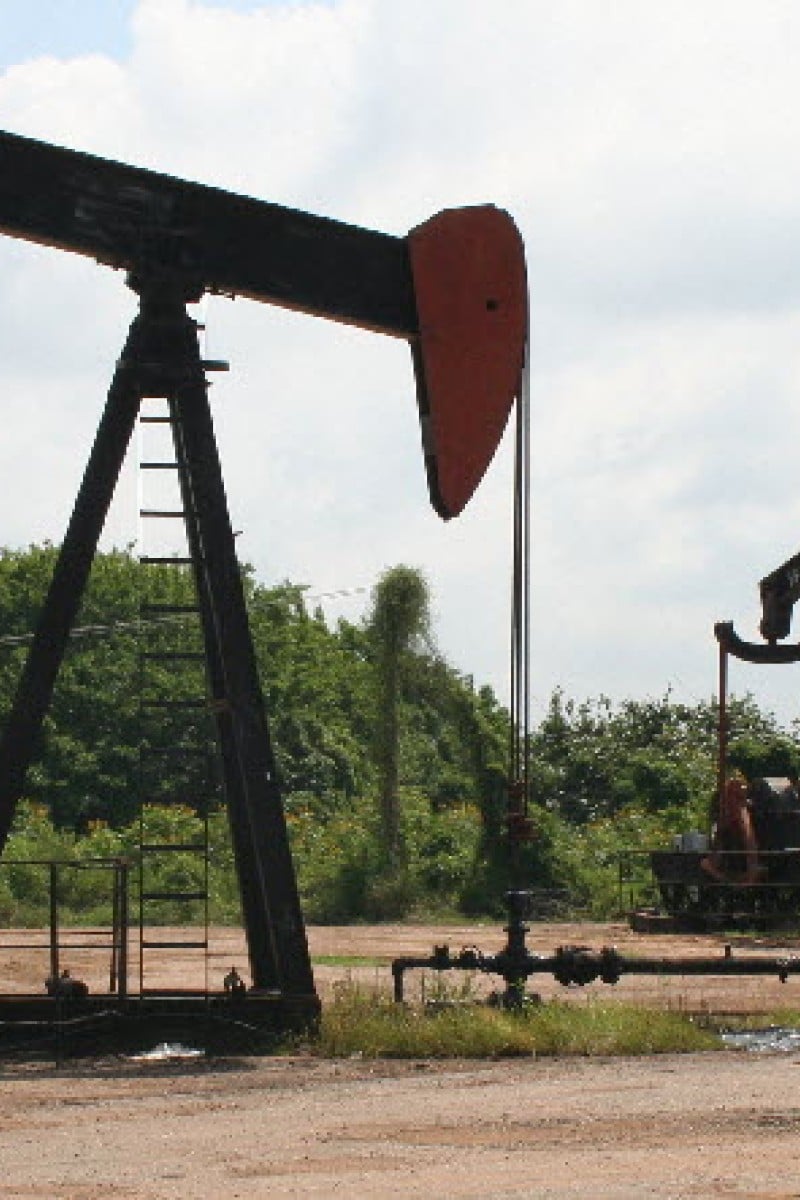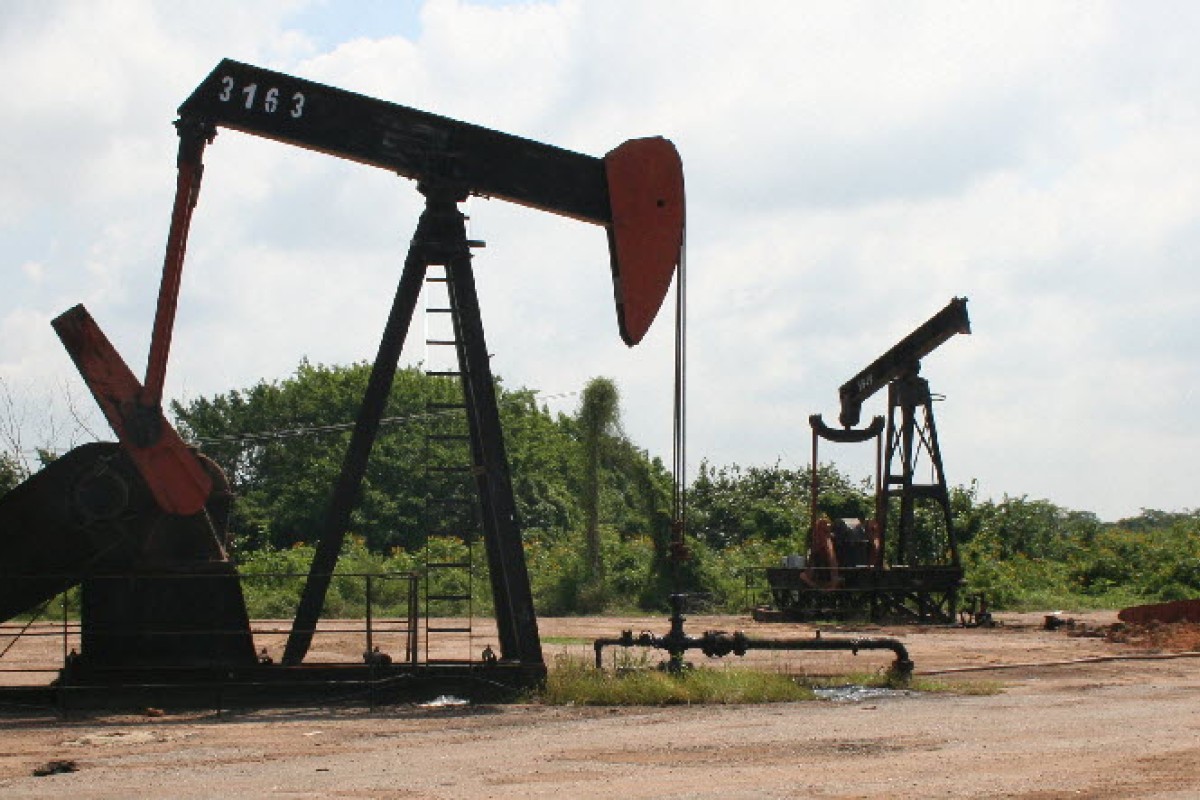
Oil-rich Venezuela still cannot compare with its Gulf counterparts, and here's why
Nicolas Maduro must stop blaming a Western conspiracy and instead implement free-market policies to revive the country’s economy

 Oil pumps in western Zulia state, Venezuela.
Oil pumps in western Zulia state, Venezuela.In April 2016, I wrote about the economic turmoil facing Nicolas Maduro’s Venezuela. This was contextualised in the aftermath of a precipitous fall in global oil prices that wreaked havoc on many oil-producing countries.
The crash put immense fiscal strain on the Gulf states and countries such as Russia, which rely heavily on oil exports as a source of foreign currency. Arguably, no economy had been hurt quite as badly as Venezuela’s. It has been exactly two years since then. From its peak of around US$110 per barrel to its nadir of below US$30, the price of crude oil has now recovered to around US$60 a barrel. Venezuela’s economy, however, has not.
Venezuela has the world’s largest proven oil reserves; the commodity is responsible for nearly all of the country’s export revenue and half of its gross domestic product (GDP). But whereas Middle Eastern nations with sizeable oil reserves have become fabulously rich, such prosperity has mostly eluded Venezuela.
Economic mismanagement
Years of economic mismanagement has meant that the country’s economy was teetering at the best of times. Inflation ran into double digits even when oil prices were at their highest. With oil prices more than 60 per cent off their peak in 2016, the country’s economy was in dire straits. Inflation hit 100 per cent in 2015 and exceeded 500 per cent in 2016. Things got no better even after the recovery in oil prices. Inflation is now running somewhere between an astonishing 4,000 per cent and 6,000 per cent.
Venezuelans routinely face severe shortages of basic goods, and an unreliable supply of water and electricity. The country’s poverty rate is more than 90 per cent, and the average Venezuelan has lost a staggering 10.8kg due to malnutrition over the past year.
How did a country so rich in natural resources find itself in such a predicament? One of the major reasons is a lack of diversification beyond the oil industry. What’s more, Hugo Chavez and his successor Nicolas Maduro are guilty of implementing deeply flawed economic policies. During his time in office, Chavez enacted a series of populist measures commonly known as Chavismo, including price controls and wide-ranging subsidies. He was also generally opposed to a market economy. All these had a severely detrimental effect on the country’s economy.
To protect consumers from rising prices, Chavez stipulated, for example, the maximum price a loaf of bread or a bar of soap could be sold. What he failed to appreciate is that suppliers would be unwilling to put goods on shelves if they did not receive a profit. The result: shortages of everything from tea bags to toilet paper
The cruel irony of price controls is that they cause the greatest harm to the very people they seek to help. If no one can buy cooking oil, it does not matter how cheap it is. Price controls undermine the core benefit of a free market: that any two parties have the freedom to trade at a mutually agreeable price.
Wasteful subsidies
Chavez, and now Maduro, have perpetuated enormously wasteful subsidies. Despite a scaling back of petrol subsidies, a litre of fuel still costs less than a litre of water. The government never built up sizeable foreign reserves – crucial to cover imports and maintain currency strength – partly because a large portion of oil revenue simply went to subsidising domestic oil consumption.
The government also insists on maintaining an official exchange rate which massively overvalues the Venezuelan bolivar. The government’s exchange rate is 25,000 bolivars to a US dollar. This was only recently adjusted from the previous exchange rate – 10 bolivars to a dollar. On the black market, the bolivar trades at more than 225,000 to a US dollar, and it is fast depreciating. Consequently, few are willing to trade their US dollars for Venezuelan bolivars – many, fearing the currency will decline further, are doing the opposite – so the country faces a grave shortage of foreign exchange.
I wrote that putting Venezuela back on track would require liberal, free-market policies and the discontinuation of subsidies. To attract much-needed dollars, the government must abandon its delusion that it can maintain the bolivar’s official exchange rate. The currency must be “floated” and allowed to trade at the market rate. Additionally, price controls, which have been responsible for the crippling shortages, must be abolished without delay.
The immediate consequence of these measures will be heightened inflation as prices adjust upwards. Importantly, however, shortages of essential goods will quickly disappear, and a competitive market will soon push prices down. Although the bolivar will at first depreciate further, this would help attract more US dollars into the economy, and ultimately strengthen the country’s currency. Less tangibly, Venezuela will experience renewed international and domestic confidence, laying the groundwork for future development.
Conspiracy theory
None of that has happened. Instead, Maduro has chosen to blame the economic catastrophe on a conspiracy involving the opposition and the American government. This is absurd. Maduro has experienced an electoral trouncing, the near-starvation of his people, and a total collapse of his country’s economy. Sadly, he will not relent. So Venezuela’s misery continues.
Edited by M. J. Premaratne
